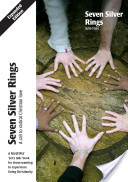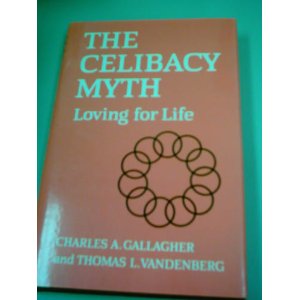 An unlikely place, Soho, to house an exhibition about Mother Teresa, or … mmmm … perhaps not.
An unlikely place, Soho, to house an exhibition about Mother Teresa, or … mmmm … perhaps not.
Like Jesus, she specialised in the sort of people that most people prefer to bypass. Second thoughts, a very fitting place to find an exhibition about her.
There was her room, a replica of it anyway. A tiny hospital bed, two old telephones (I mean old), a primitive filing system and a cardboard box under her bed with ‘AWARDS’ written in thick black pen. Perhaps, most telling, was what she had on her wall: a photo of Theresa of Lisieux, (whose name MT adopted at her first vows) with the saint’s words, ‘My vocation is love.’
I think those words could be a summary, actually, of Mother Teresa’s life.
Walking around the exhibition reminded me of my university days. I was studying Theology and finding much of it tedious and dry: reading books written in seminaries or theology departments by academics. Not that I’m against academia or theological study but theology springing from real life, actually life in the gutter, takes on a new and exciting dimension. I remember, in my third year, walking round a reservoir with a book of Mother Teresa’s sayings in my pocket and finding it, well, a reservoir of life to me at that time, water in a largely desert place. I felt as if I had found ‘the real thing’.
 It was fascinating to see her simple blue and white habit, her cardigan, the worn cloth she darned, her handwritten notes and letters asking for this and that. It made her a little more tangible and gave insight into her humanity (I hate the iconizing of even the most saintly of people).
It was fascinating to see her simple blue and white habit, her cardigan, the worn cloth she darned, her handwritten notes and letters asking for this and that. It made her a little more tangible and gave insight into her humanity (I hate the iconizing of even the most saintly of people).
Born Agnes Gonxha Bojaxhiu in Albania, Mother Teresa felt the call of God to become a missionary nun when she was eighteen. She joined an Irish order – the Loreto Sisters – and in 1929 arrived in Calcutta where she took her final vows.
Mother Teresa taught for many years. It was not until she was recovering from a serious illness in 1946, aged 36, that she received what she called her ‘second calling’. The voice of God was clear: she was to leave her convent and work with the poorest of the poor.
The exhibition displayed her conversation with Jesus at this time: “To leave that which I loved and expose myself to new labours and sufferings which will be great. These thoughts were a cause of much suffering – but His voice kept on saying, ‘WILT THOU REFUSE?’
Jesus said to her, “Come, carry Me into the holes of the poor. Come be My light, I cannot go alone, go among them, carry Me with you into them.”
Mother Teresa’s life had many similarities with St Francis of Assisi. Like Francis, strict poverty, abandonment of every personal possession and celibacy were all integral parts of her calling. Also like Francis, she formed her own order – known as the Missionaries of Charity – whilst remaining firmly within the structure of the Catholic Church. Whilst the number of monks and nuns has been steadily declining worldwide, the brothers and sisters in the Missionaries of Charity has been growing and growing, numbering about 4000 today.
The exhibition revealed MT’s inner crisis of faith (what a relief to find people like her had crises like you and me). ‘For nearly 50 years MT clung to Jesus in blind faith, not feeling His presence yet profoundly united to Him, radiating His joy and love to each person she met.’
She wrote: ‘Within me everything is icy cold. It is only that blind faith that carries me through. The smile is a big cloak that covers a multitude of pains.’
Mother Teresa referred to herself as ‘Christ’s spouse’, as do all the sisters of the Missionaries of Charity. She commented that being ‘Christ’s spouse’ is similar to the love of a wife for a husband. “We are all women who have the ability to make use of this love. We should not be ashamed of loving Jesus with our emotions.”
Speaking of her celibacy, Mother Teresa said, “I cannot in conscience love a creature with the love of a woman for a man, I no longer have the right to give that affection to any other creature but God.”
For Mother Teresa, the love she would have given to a spouse was first directed to God. To her it was a marriage of a different kind. Commenting on this ‘marriage relationship’ she found with God she once dryly said, “But sometimes I find it difficult to smile at Him because He can be so demanding!”
Her achievements are formidable in their international scope and she has become a byword of sanctity. The exhibition, however, showed us not only the depth of a love born out of suffering and obedience but a woman who was a human, like you and me.
‘My vocation is love.’ Mother Teresa got it right and I guess, if we have those four words emblazoned on our hearts, we can’t go too far wrong either.
















 Jesus Army
Jesus Army Community
Community Real and Wild
Real and Wild